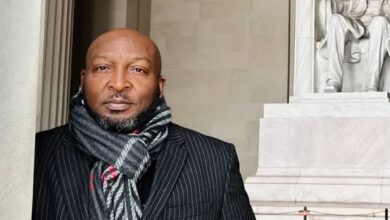Ponzi Schemes: Saving Nigerians from Miracle Garri

“People who believe such investment exists are mostly people who also live in a universe in which you could grind human penis into a money-making charm. In their world, pastors or alfas could cure someone of HIV/AIDS simply by laying their hands on them”.
Have you ever heard of MBA Trading Limited? That’s the name of an “investment company” that thousands of Nigerians trusted with their money running into an estimated 200 Billion Naira. While MBA’s pretend business was forex trading, the business was just another run-off-the-mill Ponzi scheme, and when the scheme blew up as all Ponzi schemes are bound to do, the promoter of MBA, Maxwell Odum, disappeared into thin air along with billions of investors’ money. I say investors because that’s what Odum’s victims are calling themselves even though these people should have known there was no business to invest in.
The Ponzi participants of MBA are not any different from those of Ovaioza Group of Companies promoted by Ms Imu Ovaioza Yunusa. Ovaioza was supposed to be using the billions of naira it raised from its “investors” to run an agricultural food storage business model. The company, which was essentially a commodity trading business, was allegedly promising more than 70% return on investment per business cycle and thousands of Nigerians believed this return was possible and sustainable.
MBA and Ovaioza are two of the many Ponzi businesses that have come to dominate Nigeria’s ponzi scene since the death of MMM and other Ponzi schemes that lacked any clear business idea. The new Ponzi schemes use a veneer of business to assure people that their money was being invested a business when in fact the money was being paid out to older investors as returns. Last year, the Foundation for Investigative Reporting published 40 investment scam stories with many of them robbing their victims of billions of naira.
With around 70 million people in extreme poverty, Nigeria is the world’s second poverty capital. We are second only to India, a country with a population that is five times Nigeria’s. Yet, Nigerians have also lost hundreds of billions of naira to various Ponzi schemes in the last few years. Where do poor people find money to blow on Ponzi schemes and who are those fleecing Nigerians? Based on the media reports and social media lamentations, victims range from poor students to well-to-do individuals. Many of them are well educated and defended vigorously the various schemes they were participating right up to the last hour the fraudulent schemes blew up.
There are stories of people who liquidated their life savings and handed it to 24-year-old Adewale Daniel Jayeoba of Wales Kingdom Capita who disappeared with N40 billion or 21-year-old Ngene Joshua of Brisk Capital Limited who can no longer account for N2Billion. While it is mindblowing that some would choose to invest all their money in a single business venture, Nigerians’ propensity to believe in supernatural phenomena, be it money rituals or miracles peddled by Pentecostal churches, makes many of us vulnerable to promises of impossible returns on investment. In what world is it possible to double one’s investment within months of buying, storing and selling gari? People who believe such investment exists are mostly people who also live in a universe in which you could grind human penis into a money-making charm. In their world, pastors or alfas could cure someone of HIV/AIDS simply by laying their hands on them.
Also Read: Cryptocurrency Is a Giant Ponzi Scheme
Based on my observation, there are two major groups of people who lose their money to Ponzi schemes in Nigeria. The first group are rational Ponzi investors who know for sure that they are investing in Ponzi scheme but somehow believe they can make money before the scheme crashes. These people treat Ponzi schemes like gambling but unless you are the one running the Ponzi scheme, you are more likely to lose your money than to make money. I don’t have much sympathy for this group as I have exhausted all my sympathy for them during the MMM debacle of 2016.
The second group are the irrational investors who do not subject investment opportunities to common sense tests. They are the ones who genuinely believe it is possible to make 10% monthly profit cultivating cassava or whatever the scammer tells them. This group deserves financial education. Investing must be a rational process not an emotionally driven process. Your decision must be based on what is possible and what is sustainable, not based on “there’s nothing God can’t do.” A simple rule, for now, is to never invest in any crowdfunding effort. Just steer clear.
Finally, the government, at all levels, also has a role to play in stopping these scammers and their willing victims. We need to end crowdfunding activities that are not sanctioned by the Security Exchange Commission. The government needs to work with media companies, including social media platforms, to deny their platforms to those using them to scam Nigerians. Nigeria cannot afford a situation where its citizens are losing hundreds of billions of naira to Ponzi schemes. Sometimes it is the duty of the government to save its citizens from their own folly.






